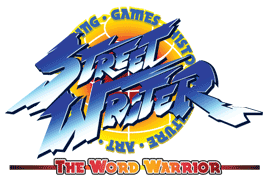

The battle system was straight forward. Skills and weapons could be combined into some fantastic attacks. Players that explored every inch of the map were rewarded with rare items and valuable back story. The graphics were outstanding for the time. Yoshitaka Amano's art direction has few rivals in any Japanese RPG. His style complimented the characters and world. Who could deny the musical genius of Nobuo Uematsu? A man that managed to turn MIDI bips and bleeps into something fantastic!

Producer Hironobu Sakaguchi and Directors Yoshinori Kitasa and Hiroyuki Itou manage to craft a moment within a game, part PaRappa the Rapper and part Phantom of the Opera. A moment where we take control and play through a scene, one of the best ever written. By using the candy colored buttons of the Super Nintendo we become the main actor on the stage, we sing of heartbreak and promise. We are made to laugh, cry and overcome adversity. We are connected to the action, we are engaged performers and not a passive audience. The illusion achieved through some simple pixels and midi sound files, not Hollywood caliber special effects.
Final Fantasy games have since taken us out of that moment. Rather than letting us play through the game they now make us sit back and watch the action. It happened as a series of music videos in FFVIII, FFX and FFX-2. When FF XII comes out and we are forced to sit through longer and longer cinemas we will hear the complaints. "Too much watching and not enough doing..."

If you were to ask a group of people from around the world, that have been playing for over 15 years, to name the top-5 console RPG's of all-time they would rank FFVI in that group. Some might easily put it in the top-3. Those same people might say that FFVII would barely crack the top-10. They are not ranking the games based on sales, graphics or fancy cinemas. They are not ranking the games on popularity either. They rank the games based on the whole package. Those are the games that delivered the best all-around experience, technology be damned!

I counter that argument with what a gamer needs versus what a gamer wants. This applies to every branch of the entertainment industry. We have become saturated with media that satisfies the consumer at every opportunity. The popular music all sounds the same, entertainers are rappers with a rhyme and a hook, every movie is eye candy and every game a 15-minute fix. When the industry suffers they blame the consumer rather themselves. People will always have a need to be entertained. They will always want to share in an experience. It is up to the industry to figure out how to fill our needs without catering to our wants.

Final Fantasy VI represents the peak of what the series used to give gamers. It represents the period where gamers basic needs were all satisfied. Before Square catered to the demands of the public and began putting longer and longer cinemas in their games. When we could take a coffee break when summoning Knights of the Round... before Square just about went bankrupt on the dismal Final Fantasy the Spirits Within?

The Game That Almost Was #18

Persona, as part of the Shin Megami Tensei series, is the best example of the contemporary role-playing game. It is the battle between good and evil, angels and demons, men in black and illuminati set in the here and now. Localization issues aside it is a well written and well conceived series that appeals to our imagination.
The game has its own combat system, unique weapons and an unusual magic system. It combines arcane magic and pagan summons with the tarot and astrology. Persona has loads of style thanks to the talented art of Kazumo Kaneko, the Atlus equivalent of Amano. Few in the industry can paint humans and demons with as much sex appeal and personality as Kazumo.
Persona is no stranger to controversy. It raises some very deep questions and covers a lot of taboo subjects, including the Catholic ideas of purgatory, Hell and suicide. If anything the upcoming version will cross the line, as characters shoot themselves in the head in order to summon their demon counterpart. But that is Persona, perpetually crossing the line. Daring to raise questions about reality and then ask us to look within. Is there a heaven? Is there a hell? What is the nature of man? What is the nature of monster? Who pulls the strings and what happens when we cross over? The issues dealing with "awakening" and reality were better written and presented in Persona than in the Matrix trilogy.

If you have only seen ads or trailers of the game you will notice a butterfly. The butterfly is a symbol in the series. The butterfly relates to the Taoist story of transformation. The meaning of awaking to truth and reality. Who would ever imagine that a butterfly could become one of the most powerful symbols in the history of gaming?
by Chuang Tzu
Once upon a time I dreamt I was a butterfly
fluttering hither and thither
to all intents and purposes a butterfly
I was conscious only of following my fancies as a butterfly
and was unconscious of my individuality as a man
Suddenly I awoke
and there I lay
myself again
I do not know whether I was then a man dreaming I was a butterfly
or whether I am now a butterfly dreaming I am a man
I’d like to hear your personal top-10, top-20, top fighting games, top sports games, or top games in any genre. Let me know in the comments section please. As always if you would like to sponsor me please visit my Patreon page and consider donating each month, even as little as $1 would help make better blogs and even podcasts!

No comments:
Post a Comment